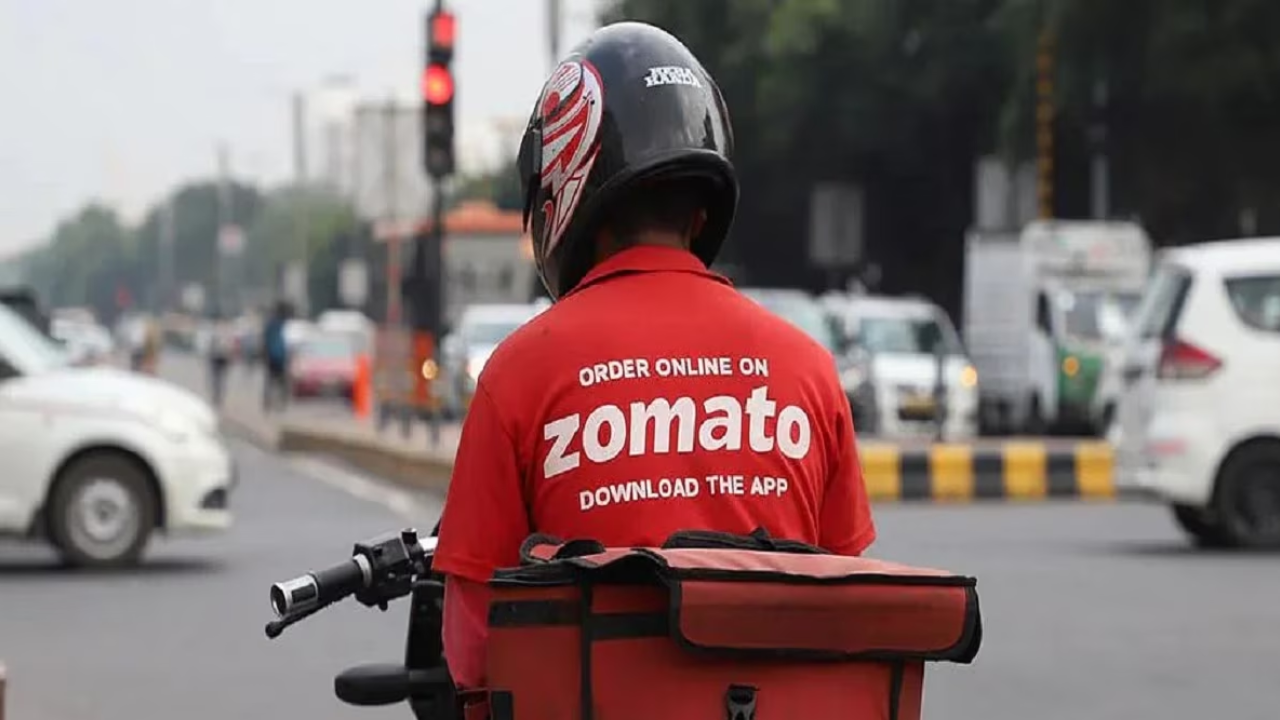Zomato Delivery Agent Story has moved thousands of people after a Delhi professional shared an emotional encounter with a young delivery executive, Shiva Sarkar. The story has triggered conversations about the hardships faced by gig workers and the potential role of companies in empowering their employees beyond just providing jobs.
A Story of Determination and Sacrifice
Himanshu Bohra, a professional from Delhi, shared his encounter with Shiva in a heartfelt LinkedIn post titled “The Story of Shiva Sarkar.” Bohra described how, after finishing work at 3 AM, he placed a food order through Zomato. When Shiva arrived with the order, his smile masked the deep challenges he faced. Bohra offered him water and began a conversation that unveiled Shiva’s reality.
Shiva, a young man in his twenties, lost his father at a young age. Forced to leave school in Class 8, he took on the responsibility of being the sole breadwinner for his family. His long hours as a delivery executive are driven by a singular goal: funding his sister’s wedding. Despite his youth, Shiva carries the weight of ensuring his family’s survival, sacrificing his own dreams of education and a carefree life.
A Call to Action: Upskilling for a Better Future
Bohra, deeply moved by Shiva’s story, addressed Zomato’s CEO, Deepinder Goyal, in his post. He proposed initiatives like upskilling programs, scholarships, and easy loans tailored for delivery executives. His post questioned the status quo, asking: “What if these delivery workers were given the opportunity to dream again? What if they could acquire skills that not only help them earn a living but also pave the way for brighter futures?”
He emphasized that while gig economy jobs provide immediate income, long-term growth opportunities can transform lives. Bohra’s call to action reflects a growing sentiment among consumers and employees for companies to play a more active role in the well-being and development of their workforce.

Zomato’s Response
The post quickly gained traction on social media, garnering widespread attention. Zomato responded, thanking Bohra for highlighting the story and expressing pride in their “delivery universe.” The company requested the order ID to personally acknowledge Shiva’s efforts and offer appreciation.
While Zomato’s response was well-received, the broader conversation about the welfare of gig workers remains ongoing. Social media users praised Bohra for his empathy and suggested that individuals could also contribute by offering kindness and support to delivery personnel, especially during the festive season.
Challenges Faced by Gig Workers
Shiva’s story highlights the systemic challenges faced by gig workers, who often endure long hours, unpredictable earnings, and limited access to benefits:
- Lack of Education and Skill Development: Many delivery agents like Shiva are unable to pursue higher education due to financial constraints, limiting their career growth opportunities.
- Financial Struggles: With high-interest loans and familial responsibilities, many gig workers find themselves trapped in a cycle of debt.
- Absence of Benefits: Unlike traditional employees, gig workers often lack health insurance, retirement plans, or paid leave, making them vulnerable to financial instability.
- Emotional Toll: The demanding nature of gig work can lead to mental and physical fatigue, further exacerbating the struggles of workers like Shiva.
Potential Solutions
Bohra’s proposals resonate with the growing movement toward corporate social responsibility in the gig economy. Here are some actionable solutions:
- Upskilling Programs: Companies can offer free or subsidized courses in areas like digital marketing, coding, or language skills to help employees transition to higher-paying roles.
- Scholarships: Providing financial aid for the education of delivery executives or their children can break the cycle of poverty.
- Low-Interest Loans: Easy access to financial assistance for essential needs, such as family events or emergencies, can reduce reliance on predatory moneylenders.
- Health and Wellness Benefits: Offering health insurance, mental health support, and fitness programs can enhance the quality of life for gig workers.
- Recognition and Rewards: Acknowledging exceptional employees publicly fosters motivation and builds loyalty.
The Impact of Empathy
Bohra’s post and Shiva’s story have sparked a broader conversation about empathy in the workplace and society. It serves as a reminder that beyond numbers and statistics, every delivery order carries the story of someone striving to make ends meet. As one social media user aptly commented, “Be kind to people around you, especially during the festive season and new year. It is the best gift you can give.”

A Step Toward Change
Shiva’s resilience and Bohra’s compassion illustrate the transformative power of small actions. By highlighting the struggles of gig workers and advocating for systemic change, stories like these can inspire companies to rethink their approach to employee welfare. Whether through upskilling initiatives, financial support, or simple acts of kindness, every effort contributes to building a more inclusive and empathetic society.

